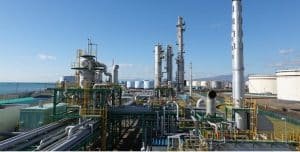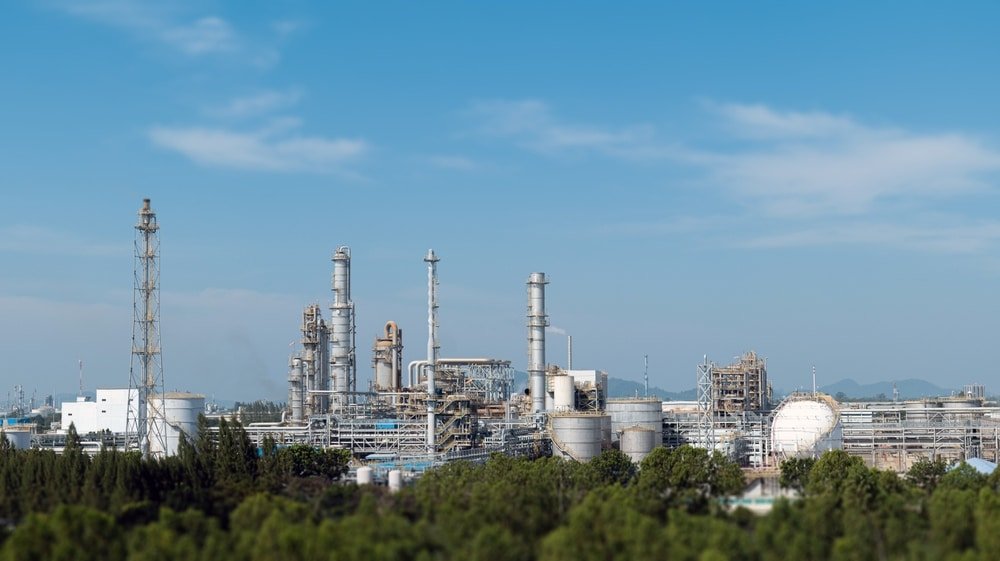On May 17th, Japan’s House of Councillors passed a new law to bolster the business environment for carbon capture and storage (CCS) technology which is crucial for achieving a decarbonized society. The legislation received majority support in the plenary session.
Key Provisions of Japan’s New CCS Law
The law mandates that the government introduce a permit system for businesses to facilitate CO2 capture from industries operating at variable scales and their underground storage. This measure is part of Japan’s broader strategy to achieve net-zero carbon emissions by 2050.
Role of Japan’s Ministry of Economy, Trade, and Industry (METI)
To foster a conducive business environment for CCS projects, the Ministry of Economy, Trade, and Industry (METI) of Japan will establish a licensing system. It will cover storage and exploration drilling rights, and develop business and safety regulations for storage companies and CO2 pipeline transportation businesses. Test drilling permits at potential CCS sites will initially be valid for four years. METI will designate suitable geological storage areas as “specified areas” and solicit operators, granting licensed operators prospecting and storage rights.
Notably, this is the first time the CCS bill defines operators’ rights and regulatory requirements. The main highlights of the newly introduced bill are:
CCS Sites and Business permits
- Designate Suitable Areas: Identify specific regions where carbon dioxide (CO2) can be safely stored underground.
- Grant CCS Business Permits: Select businesses through a public offering process and grant them permits to operate CCS projects.
Licensed operators will be given
- Exploratory Drilling Rights: These rights allow businesses to drill and confirm if geological formations are suitable for CO2 storage.
- Storage Rights: These rights permit the actual storage of captured CO2 underground.
Obligations and Liabilities
The law imposes several obligations on businesses:
- Monitoring: Businesses must continuously monitor for any CO2 leaks.
- Liability for Accidents: Businesses are liable for compensation regardless the leak was due to negligence or an intentional act.
CCS project operators must have their implementation plans approved by the Minister for Economy, Trade, and Industry. Once the stored CO2 is stabilized, the Japan Organization for Metals and Energy Security (JOGMEC) will take over the management. Operators will be liable for compensation during accidents, regardless of intent or negligence.
Subsidy System for Hydrogen
In addition to the CCS law, the House of Councillors also passed a law to establish a subsidy system. This system aims to narrow the price gap between hydrogen and natural gas, promoting hydrogen as a viable next-generation energy source.
This comprehensive approach strengthens Japan’s efforts to reduce carbon emissions through CCS and supports the broader adoption of hydrogen energy, aligning with the country’s long-term environmental goals.
Japan Advances Carbon Capture under Green Transformation (GX) Policy
Japan’s newly approved law is crucial to achieving a decarbonized economy. It’s an extension of the Green Transformation (GX) Policy that existed since last year.
Unveiled in February 2023 and approved in July 2023, Japan’s GX policy integrates fiscal and policy measures, potentially amounting to a $1 trillion (150 trillion yen) budget. This policy provides a roadmap for the next decade, balancing economic growth with environmental sustainability.
Japan’s Prime Minister Fumio Kishida said,
“First of all, green transformation, or GX in short, does not just mean the departure from fossil energy. It involves the implementation of major reforms of energy, all industries, and our economy and society, toward achieving the goal of carbon neutrality by 2050. To this end, Japan has made a highly challenging international pledge of a 46 percent reduction in greenhouse gas emissions by fiscal 2030.”
Image: The Tomakomai CCS Demonstration Project- Japan’s first full-chain CCS project, captured and stored CO2 from a coastal oil refinery on Hokkaido Island in Japan from 2016 to 2019.

Based on International Energy Agency (IEA) calculations,
- Japan’s estimated annual storage capacity for CCS could range from 120 to 240 MTs by 2050. The goal is to have the first commercial CCS project operational by 2030.
By advancing these legislative measures, Japan aims to create a robust framework for CCS and low-carbon hydrogen, supporting its long-term decarbonization and economic growth objectives.
By enacting these laws, Japan is taking significant steps toward a sustainable and decarbonized future, leveraging both CCS technology and hydrogen energy to mitigate climate change.

